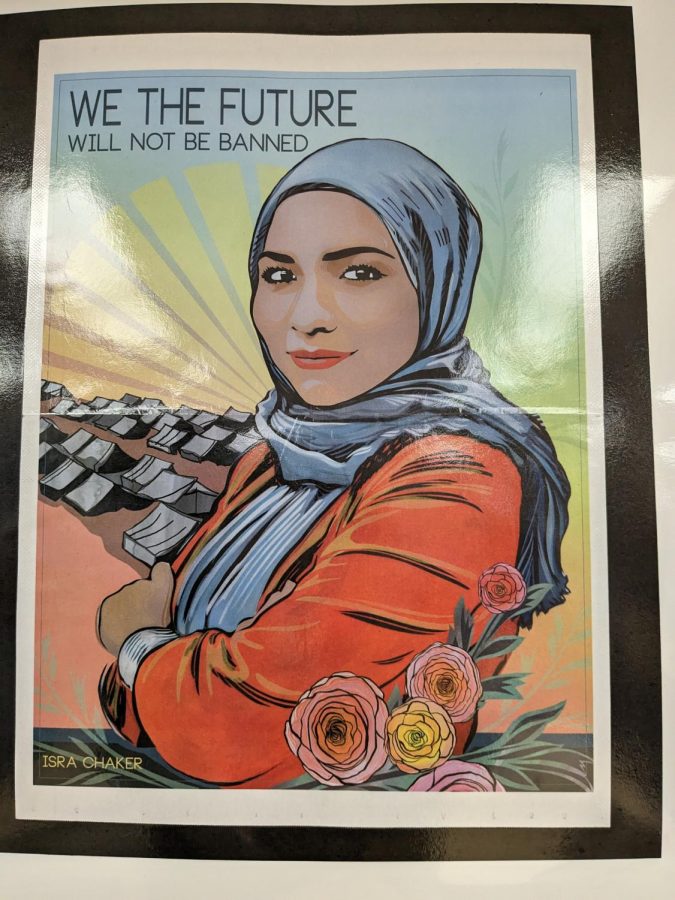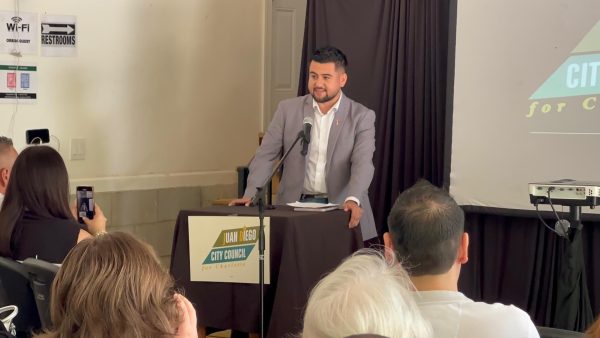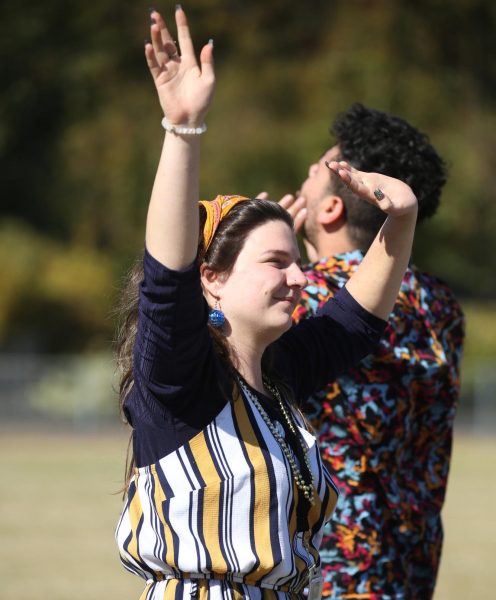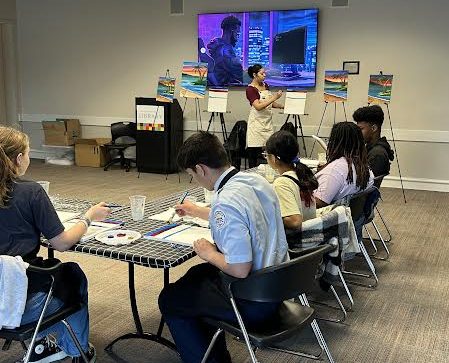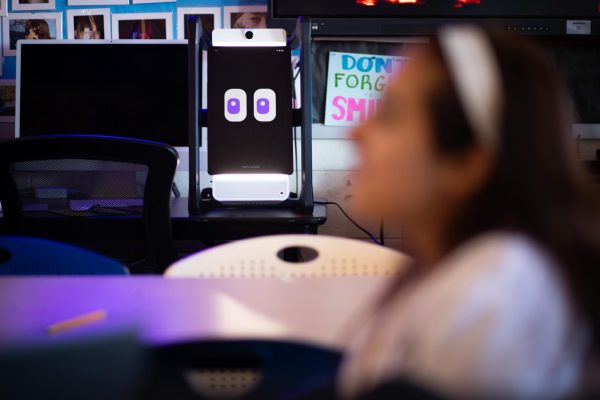Flying Off Shelves: CMS Book Removal
It is said that you can’t judge a book by its cover. In Charlotte Mecklenburg Schools and around the country, books are being judged not by their covers but by their explicit content- and in some cases, removed from school libraries.
On Feb. 17, the books “Let’s Talk About It: The Teen’s Guide to Sex, Relationships, and Being a Human” and “Sex Plus: Learning, Loving, and Enjoying Your Body” were removed from shelves at Palisades and West Charlotte High Schools.
After hearing a parent in Alaska object to the books at the school board, Brooke Weiss, the chapter chair for Mecklenburg County’s ‘Moms For Liberty’, checked to see if the books were in CMS libraries. After finding them in two high schools, she emailed CMS school board members and the superintendent.
“I didn’t ask for the books to be removed, I just asked for an explanation,” Weiss said. “What I am asking for is that books like that, and books that have been challenged by a parent and reviewed by a book committee and reach a certain decision, that maybe their access is limited.”
When someone – a parent, teacher, or community member – objects to a book, they go to a school board meeting or contact the school’s principal to submit a formal challenge. Each school’s Media and Supplementary Instructional Materials Advisory Committee (MAC)- made of parents, teachers, and students – gathers to decide if the book is appropriate for the school after reading and reviewing it.
In the case of “Let’s Talk About It” and “Sex Plus”, the process was a little different because the books were in a package of 8500 books from a private vendor, not books selected personally by a media coordinator. There is no formal procedure for a book removal in these circumstances, which is how the removal occurred with no official challenge. The books were brought to the schools’ MACs, and both decided to remove them.
The number of CMS formal book challenges has remained steady in recent years. “Objections, people going straight to the press, superintendent, board meetings, instead of working with us, have seen a radical rise,” said Kim Ray, the Director of Digital Learning and Library Services for Charlotte-Mecklenburg Schools. “But they are not wanting to engage in the formal process we have to work together.”
“These tend to come from specific political groups in the community and they have an objective which is to change the process itself. I think if they feel the more press, public outrage that is fostered through this approach, the more likely they are to see people panic and act really quickly.”
“I never advise people or tell people [in other chapters of Moms for Liberty] to ask for the books to be removed,” said Weiss. “The only thing I ask for is that access to some books be limited and that parents are given the opportunity to either opt in or opt out to a system that allows their children access to that material.”
However, the other chapters don’t seem to be in agreement with that message.
In 2022, Wake county Moms for Liberty challenged the book “Gender Queer” by Maia Kobabe, a memoir of the author’s gender and sexuality journey. This book was challenged 41 separate times across the US in 2022, the most of any book recorded that year. The book was returned to Wake county libraries after librarians protested the decision, but that is not the case everywhere.
Over the last three years, Williamson, TN, Indian River and Brevard, FL, Central Bucks, PN, Campbell, KY, and other counties have had books challenged, removed, or restricted due to efforts led by Moms for Liberty. There are at least 50 groups, some with up to 300 chapters, pushing for book restrictions or bans around the country, according to PEN America.
The reasoning for most book challenges is sexually explicit language/images. However, this does not explain the overwhelming national trend of challenged/removed books containing LGBTQ characters or racial injustice.
“Almost all of the books that are being challenged are so-called “woke” books and anything dealing with sexuality,” said Ms. Robin Williams, East Meck’s media coordinator. According to PEN America, 41 percent of banned books have LGBTQ characters or themes.
“As a parent,” said Williams, “I can look at a book and go, oh I really don’t want my son reading that. But what’s inappropriate for my son is appropriate for someone else. Gender Queer is only going to fit a small population of people. But those people need to know that they’re not alone, or strange, or odd.”
Williams explained how the current events aren’t in line with the traditional way a book is challenged, when a parent objects to a book their child was assigned to read or check out from the library. “Our collections are public. The Moms for Liberty were getting on it and seeing what books we have and targeting the schools. Sometimes they don’t even have kids in CMS or the school,” Williams said.
“I want to believe that it’s about the power of books, but I think it’s just power-hungry people.”
Your donation will support the student journalists of East Mecklenburg High School. Your contribution will allow us to purchase equipment and cover our annual website hosting costs.

